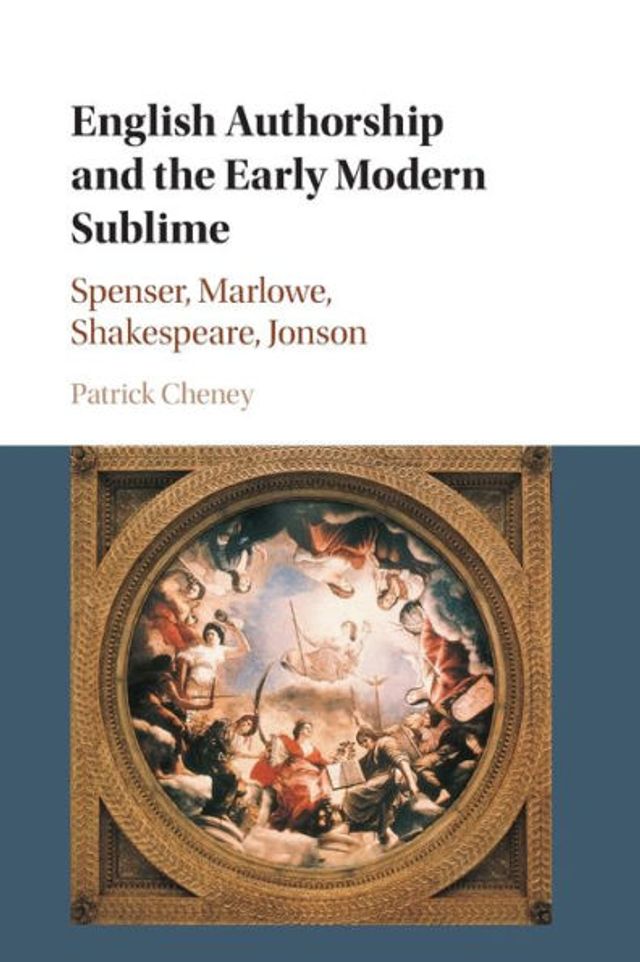Home
Marlowe's Delayed Resurrection, or A Key to the Shakespeare Enigma
Barnes and Noble
Marlowe's Delayed Resurrection, or A Key to the Shakespeare Enigma
Current price: $29.99


Barnes and Noble
Marlowe's Delayed Resurrection, or A Key to the Shakespeare Enigma
Current price: $29.99
Size: OS
Loading Inventory...
*Product information may vary - to confirm product availability, pricing, shipping and return information please contact Barnes and Noble
'A man who is right twenty-four hours before everyone else, is taken for a lunatic for twenty-four hours.' (Antoine de Rivarol, 1753-1801)
Well, I am looked at as a fool or a seditious maverick. At 20 I was starting to be an economist or economic historian, but the world of the media seduced me for a long time, all the while keeping my interest in psychology and handwriting analysis, and the latter became the guide thread of this book in the Shakespeare authorship debate. As a theatregoing teenager and University student, I watched performances of Shakespeare's plays staged in Budapest, and read them several times in the original or Hungarian translation. I also listened to lectures on psychology at the Free University, and realized how up-to-date psychological knowledge is concentrated in these centuries-old plays. At the same time, my studies in graphology brought me to Shakespeare's six signatures, and discovered an incomprehensible gap between the personality encoded in this handwriting and the traits needed to create such plays. My further analysis of the signatures confirmed that William Shakspere of Stratford could in no way have been the author of Shakespeare's works; the 'Swan of Avon' or the 'Bard of Stratford' was actually illiterate. This has been confirmed by the contents of his will and all other information available about him. My uncertainty was dispelled by the fact that famous scholars, writers and artists had already judged this part of the authorship the same way: Mark Twain, Walt Whitman, Henry James, Ralph Waldo Emerson, Sigmund Freud, Charlie Chaplin, Orson Welles, and many others. But I did not have time and inclination to wander further in the jungle of speculations about the concealed real author.
In the meantime the situation has changed. Archives became available through the internet, and I have got enough free time as I retired. The digitisation of old manuscripts boosted many historical and philological research on authorship, but literary scholars still know very little about the significance of handwriting analysis and they are walking around blindfolded to the obvious fact that longhand is a physical evidence of the manuscripts' origin. This awakened the sleeping rebel in me - who completed this book. Not an easy read, but an exciting intellectual adventure for those infected with the virus of independent thinking.
Well, I am looked at as a fool or a seditious maverick. At 20 I was starting to be an economist or economic historian, but the world of the media seduced me for a long time, all the while keeping my interest in psychology and handwriting analysis, and the latter became the guide thread of this book in the Shakespeare authorship debate. As a theatregoing teenager and University student, I watched performances of Shakespeare's plays staged in Budapest, and read them several times in the original or Hungarian translation. I also listened to lectures on psychology at the Free University, and realized how up-to-date psychological knowledge is concentrated in these centuries-old plays. At the same time, my studies in graphology brought me to Shakespeare's six signatures, and discovered an incomprehensible gap between the personality encoded in this handwriting and the traits needed to create such plays. My further analysis of the signatures confirmed that William Shakspere of Stratford could in no way have been the author of Shakespeare's works; the 'Swan of Avon' or the 'Bard of Stratford' was actually illiterate. This has been confirmed by the contents of his will and all other information available about him. My uncertainty was dispelled by the fact that famous scholars, writers and artists had already judged this part of the authorship the same way: Mark Twain, Walt Whitman, Henry James, Ralph Waldo Emerson, Sigmund Freud, Charlie Chaplin, Orson Welles, and many others. But I did not have time and inclination to wander further in the jungle of speculations about the concealed real author.
In the meantime the situation has changed. Archives became available through the internet, and I have got enough free time as I retired. The digitisation of old manuscripts boosted many historical and philological research on authorship, but literary scholars still know very little about the significance of handwriting analysis and they are walking around blindfolded to the obvious fact that longhand is a physical evidence of the manuscripts' origin. This awakened the sleeping rebel in me - who completed this book. Not an easy read, but an exciting intellectual adventure for those infected with the virus of independent thinking.


















